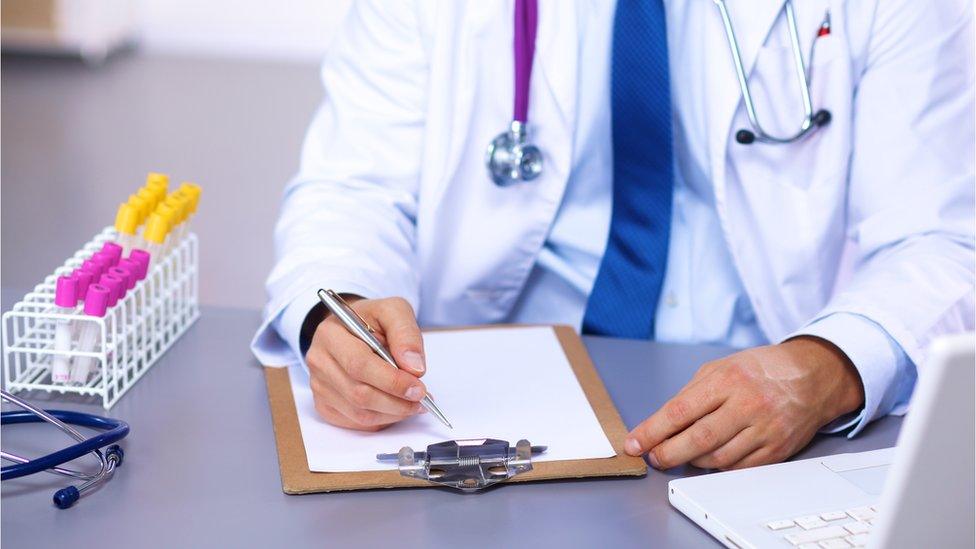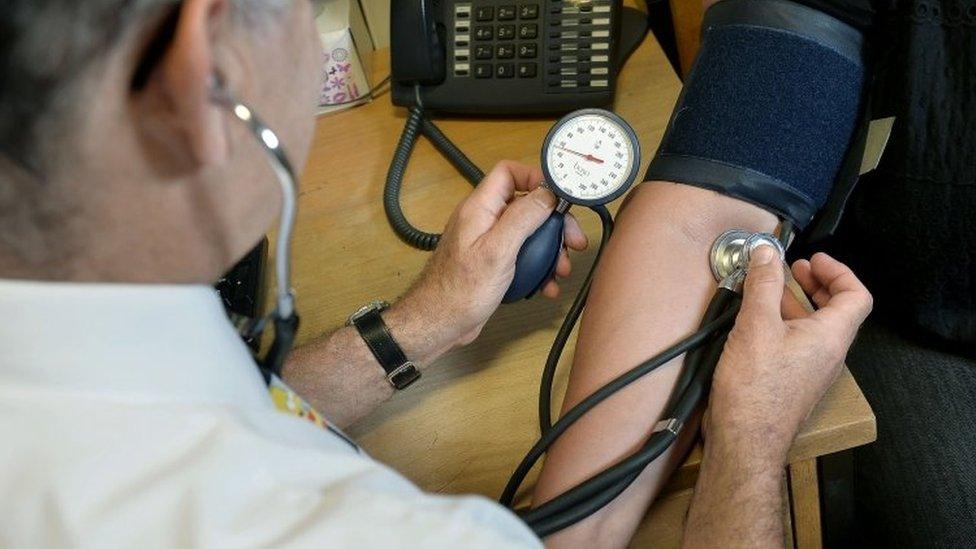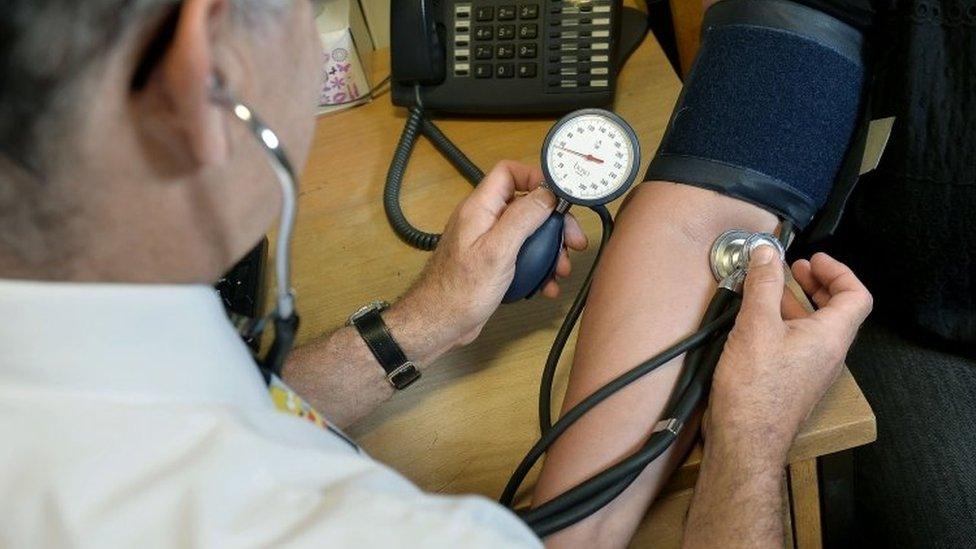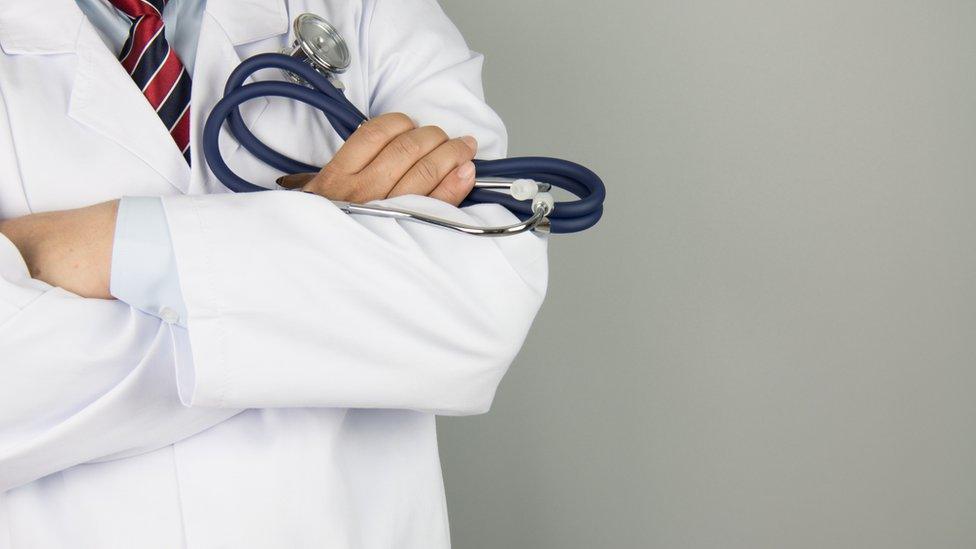Rising workload 'hits patient care', BMA survey finds
- Published

Only 7% of GPS surveyed said they had enough time with patients in consultations
More than 90% of Scottish GPs believe their rising workload has negatively affected patient care, a survey found.
Only 7% of the 900 doctors who took part in a BMA Scotland survey said the amount of time they had to see patients during consultations was adequate.
The group said GPs were under "immense pressure" due to an "unsustainable" and rising workload.
The Scottish government said it was "significantly increasing" the level of investment in primary care.
There have been warnings that Scotland is facing a shortfall of hundreds of family doctors, amid falling staff numbers.
The survey by the British Medical Association contacted a total of 900 professionals in Scotland, and 91% of them said their workload had "negatively impacted on the quality of care given to patients".
When asked what the best way of improving the situation would be, 44% of respondents said increased funding to support general practice should be the top priority.
A further 36% identified GP numbers as the best goal, while 18% identified longer consultation times.
'Immense pressure'
Dr Alan McDevitt, chairman of the BMA's Scottish GP committee, said the survey reflected the "immense pressure" that doctors in Scotland were feeling.
He said: "The rising workload is simply unsustainable and something has to change to make general practice in Scotland fit for the future.
"It is essential that the additional £500m per year promised by the Scottish government is spent directly on supporting general practice.
"Giving us more time with patients, expanding the GP workforce and supporting the practice based primary care team will help to ensure the quality of care that our patients receive remains of a high standard."

The BMA said the rising workload of GPs is "simply unsustainable"
Health Secretary Shona Robison signed a joint agreement with the BMA about the future direction of GP services in November.
She said she was committed to working with the profession to redesign services and provide more support for GPs, allowing them to spend more time with patients.
She said: "We are significantly increasing the amount of investment going into primary and GP care - an extra £500m by the end of this parliament.
"However, as we have made consistently clear, we must also reform the way we provide services.
"These reforms, coupled with the additional investment, will help to improve the attractiveness of general practice as a career, reduce workloads and create a more sustainable workforce."
'Heaviest workloads'
The Scottish Conservatives said the survey was "the latest in a long line of warnings" to the SNP over Scotland's "GP crisis".
Party health spokesman Donald Cameron said: "Posts are being left unfilled, patients can't get quick appointments and projections for future service levels are becoming increasingly dire.
"The SNP has been in sole charge of health for a decade and it can't get away from the fact it is responsible for this situation.
"That's why we believe at least 10% of health funding should go to general practice by 2020 to ensure GPs are able to cope with present and future demands."
Scottish Greens health spokeswoman Alison Johnstone added: "GPs are under enormous pressure and Greens support the call for a greater share of health funding to go toward general practice.
"Scottish ministers also need to review the way funding is dispersed as GPs in deprived areas dealing with the health impacts of poverty have the heaviest workloads yet do not receive a fair share of funding."
Lib Dem health spokesman Alex Cole-Hamilton said: "When 91% of GPs are telling the Scottish Government that rising workloads are hitting standards of care, it's clearly time for the government to put their hands up and work to address this problem.
"Scottish government ministers need to ensure that working practices are fit for the future and Scotland's GPs have the support and resources they need."
- Published19 September 2016

- Published14 June 2016
